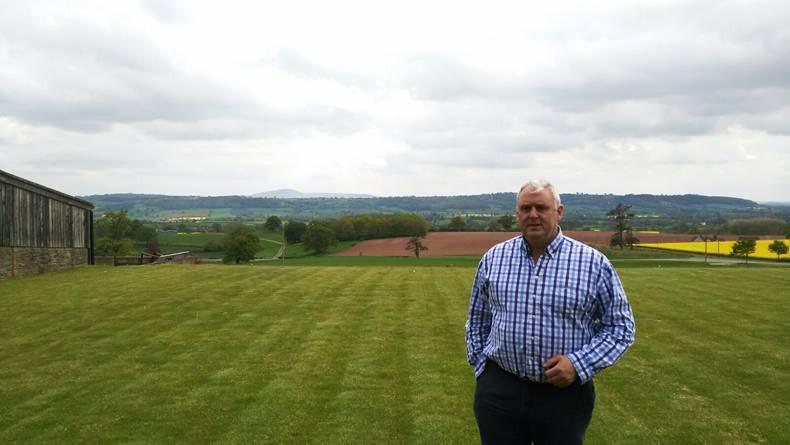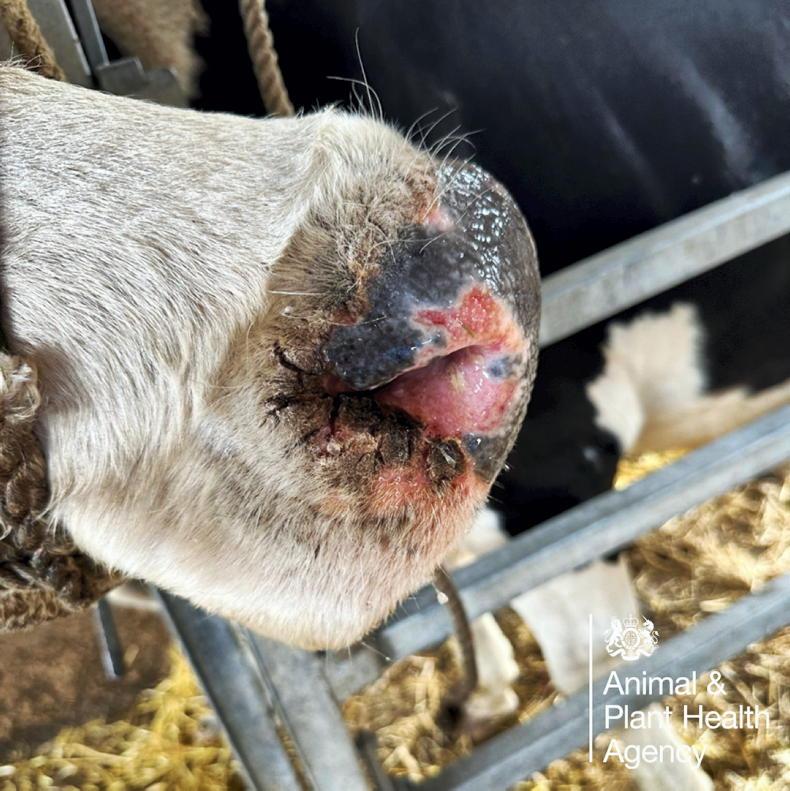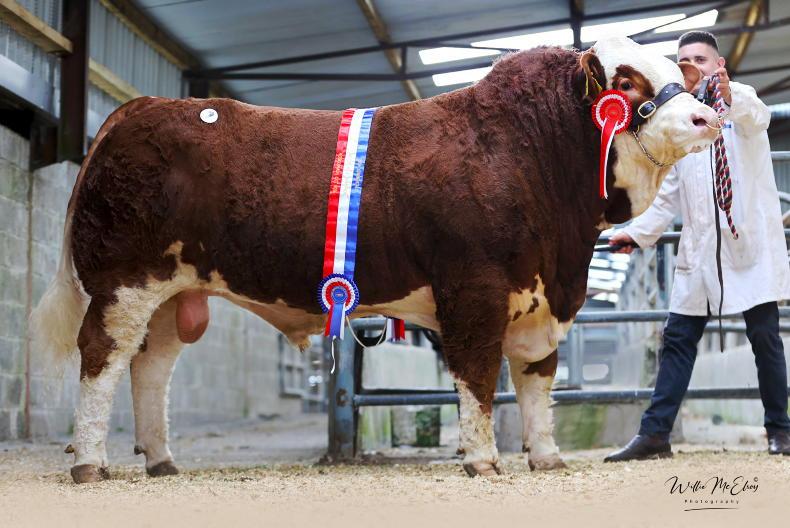An overwhelming number of English farmers believe that by voting to leave the European Union, it will restore their sovereignty. The Irish Farmers Journal went to investigate the views of farmers in England.
The EU referendum, on 23 June, is gathering much more coverage in British media in recent weeks and farmers have varied opinions on the matter. One even said that people over 65 should not have a vote because it will mainly affect younger generations. What is clear, is that nobody knows what sort of deal would be reached with Europe should the British public vote to leave.
Former Taoiseach John Bruton urged voters to remain in the EU and said it is the first time in 60 years that any country has considered leaving. “Even with maximum goodwill from the European Commission, a post Brexit EU trade agreement with Britain would become prey to the domestic politics of the 27 remaining EU countries, each of whom would have their own axes to grind. There would be a lot of uncertainty, over a long period,” Bruton said in Stonyhurst College, Lancashire, on Sunday.
Steven Povall farms 1,200 acres, 350 of which are owned, between Bridgnorth and Ludlow in Shropshire. His reasons for voting to leave the EU are that the UK is losing its sovereignty, it is not in charge of its borders and Europe is no longer merely a group of trading partners as it was originally.
“I don’t like to be told what to do,” said the McCain’s supplier. “I feel that the EU was for trading partners and it started off with seven, which seemed fine, but all of a sudden it had 27.
“The countries they are letting in now are not for trading because they’ve got no money to buy anything with. They’re there for taking the money that we’re paying into it, to build up their infrastructure. I don’t understand why it’s one-way traffic like that.”
Povall farms 400 acres of potatoes for McCain’s and, last year, he built four chicken houses that hold 55,000 broilers each and they are reared on contract for Cargill, finished at 36 days. He believes that the argument to stay in Europe due to trading restrictions is just scaremongering.
“We’re all driving German cars, German tractors and German potato machinery,” he said. “Who are they going to sell it to if we don’t buy it? And if we buy that, why won’t they buy our stuff? We’re only 60% self-sufficient in this country, so we’re more importers than exporters. They need us as much as we need them.”
Unrest
Povall is not the only person who believes the UK prime minister, David Cameron, is merely holding this referendum to appease voters who returned him to power. “Now he is doing it at the soonest possible date because the euro is going to fall apart and also migration is going to become a big thing – there’s a lot of unrest in Europe.”
Povall’s view is that if Britain votes to stay in the EU, it should also become part of the eurozone. “You’re either in it or you’re out of it,” he added.
He does not deny that English MEPs are not as focused on agriculture as they are in Ireland or France. “We are going to be at our government’s mercy [by voting out], but we’ve had subsidies and payments before we joined the EU. At the moment, we’re in a time of plenty; fuel is cheap and there’s plenty of it, food is cheap and there’s plenty of it.
“We receive a single farm payment, which is lovely. But it goes to our landlords in rent. It goes to our feed merchants and fertiliser suppliers; we don’t get it. It seems that it is getting less all the time and it will get phased out eventually. Cameron has said that he will pay us a subsidy as long as he is in power.”
Povall said that farmers need a strong NFU to negotiate the best deal for agriculture when the UK leaves Europe.
Julian Godwin is a farmer and merchant near Kidderminster, Worcestershire. Ten per cent of his business is 300 acres of beef and sucklers, while 90% is Foxley Farm Supplies which trades seed, fertiliser and straw.
For him, the UK needs to maintain existing trade relationships and build upon them but that does not necessarily mean it should stay within the EU.
“The beauty of the EU is that we fill out a delivery note and an invoice,” said Godwin, comparing the differences of sending a load of straw to Wales or Belgium. “Whilst I’m sure there will be more documentation if we come out of the EU, I don’t think it will stop the trade. Traders always find ways to get things done.”
By leaving the EU, Godwin believes it will give the UK a chance to distance itself from the structural problems within it, citing large amounts of debt in Spain and Italy.
“There’ll be a bumpy ride for a couple of years while things settle down,” he said of leaving the union. “We import a lot of fertiliser, so that will probably get more expensive for a period. There will be some grey areas in relation to single farm payment and regulation, that sort of stuff. But it will sort itself out in a couple of years.”
While he is confident that the English government will maintain some sort of subsidy for farming, the “current Tory government will not want to maintain the current level of support, which is a worry.”
Godwin said that the sad thing about the lower level of subsidies is that farms will have to become more efficient, subsequently reducing the number of farm families.
“The question is, do we want to keep farmers on the land? That’s a biggy for me because I’m a farmer’s son, I grew up on the land and I went to the village school. There are a lot of people living in the countryside.
“If we want to keep low food prices that will go, there will be an exodus of people from the countryside because the jobs won’t be there.”
The decision between having rural economies and low food prices is one that he feels the British government will have to face if the voting public decide to leave the union.
His views on the referendum itself are more straightforward, saying that trade will continue no matter whether the UK is in or out. He said the free trade part of the union has been the best, but the EU has its failings.
“This top-down approach where one size fits all doesn’t work. We have all this bureaucracy that nobody can vote on. The more people in a meeting room, the less you achieve and that’s Europe in a nutshell.
“Personally, I think that us leaving the EU will hasten its breakup. If we stay in, it might last 15 to 20 years. There will be a core that will stay in and the periphery such as Spain and Italy will be in second division Europe.”
Odile Evans continues her series by visiting farmers in Cumbria.
An overwhelming number of English farmers believe that by voting to leave the European Union, it will restore their sovereignty. The Irish Farmers Journal went to investigate the views of farmers in England.
The EU referendum, on 23 June, is gathering much more coverage in British media in recent weeks and farmers have varied opinions on the matter. One even said that people over 65 should not have a vote because it will mainly affect younger generations. What is clear, is that nobody knows what sort of deal would be reached with Europe should the British public vote to leave.
Former Taoiseach John Bruton urged voters to remain in the EU and said it is the first time in 60 years that any country has considered leaving. “Even with maximum goodwill from the European Commission, a post Brexit EU trade agreement with Britain would become prey to the domestic politics of the 27 remaining EU countries, each of whom would have their own axes to grind. There would be a lot of uncertainty, over a long period,” Bruton said in Stonyhurst College, Lancashire, on Sunday.
Steven Povall farms 1,200 acres, 350 of which are owned, between Bridgnorth and Ludlow in Shropshire. His reasons for voting to leave the EU are that the UK is losing its sovereignty, it is not in charge of its borders and Europe is no longer merely a group of trading partners as it was originally.
“I don’t like to be told what to do,” said the McCain’s supplier. “I feel that the EU was for trading partners and it started off with seven, which seemed fine, but all of a sudden it had 27.
“The countries they are letting in now are not for trading because they’ve got no money to buy anything with. They’re there for taking the money that we’re paying into it, to build up their infrastructure. I don’t understand why it’s one-way traffic like that.”
Povall farms 400 acres of potatoes for McCain’s and, last year, he built four chicken houses that hold 55,000 broilers each and they are reared on contract for Cargill, finished at 36 days. He believes that the argument to stay in Europe due to trading restrictions is just scaremongering.
“We’re all driving German cars, German tractors and German potato machinery,” he said. “Who are they going to sell it to if we don’t buy it? And if we buy that, why won’t they buy our stuff? We’re only 60% self-sufficient in this country, so we’re more importers than exporters. They need us as much as we need them.”
Unrest
Povall is not the only person who believes the UK prime minister, David Cameron, is merely holding this referendum to appease voters who returned him to power. “Now he is doing it at the soonest possible date because the euro is going to fall apart and also migration is going to become a big thing – there’s a lot of unrest in Europe.”
Povall’s view is that if Britain votes to stay in the EU, it should also become part of the eurozone. “You’re either in it or you’re out of it,” he added.
He does not deny that English MEPs are not as focused on agriculture as they are in Ireland or France. “We are going to be at our government’s mercy [by voting out], but we’ve had subsidies and payments before we joined the EU. At the moment, we’re in a time of plenty; fuel is cheap and there’s plenty of it, food is cheap and there’s plenty of it.
“We receive a single farm payment, which is lovely. But it goes to our landlords in rent. It goes to our feed merchants and fertiliser suppliers; we don’t get it. It seems that it is getting less all the time and it will get phased out eventually. Cameron has said that he will pay us a subsidy as long as he is in power.”
Povall said that farmers need a strong NFU to negotiate the best deal for agriculture when the UK leaves Europe.
Julian Godwin is a farmer and merchant near Kidderminster, Worcestershire. Ten per cent of his business is 300 acres of beef and sucklers, while 90% is Foxley Farm Supplies which trades seed, fertiliser and straw.
For him, the UK needs to maintain existing trade relationships and build upon them but that does not necessarily mean it should stay within the EU.
“The beauty of the EU is that we fill out a delivery note and an invoice,” said Godwin, comparing the differences of sending a load of straw to Wales or Belgium. “Whilst I’m sure there will be more documentation if we come out of the EU, I don’t think it will stop the trade. Traders always find ways to get things done.”
By leaving the EU, Godwin believes it will give the UK a chance to distance itself from the structural problems within it, citing large amounts of debt in Spain and Italy.
“There’ll be a bumpy ride for a couple of years while things settle down,” he said of leaving the union. “We import a lot of fertiliser, so that will probably get more expensive for a period. There will be some grey areas in relation to single farm payment and regulation, that sort of stuff. But it will sort itself out in a couple of years.”
While he is confident that the English government will maintain some sort of subsidy for farming, the “current Tory government will not want to maintain the current level of support, which is a worry.”
Godwin said that the sad thing about the lower level of subsidies is that farms will have to become more efficient, subsequently reducing the number of farm families.
“The question is, do we want to keep farmers on the land? That’s a biggy for me because I’m a farmer’s son, I grew up on the land and I went to the village school. There are a lot of people living in the countryside.
“If we want to keep low food prices that will go, there will be an exodus of people from the countryside because the jobs won’t be there.”
The decision between having rural economies and low food prices is one that he feels the British government will have to face if the voting public decide to leave the union.
His views on the referendum itself are more straightforward, saying that trade will continue no matter whether the UK is in or out. He said the free trade part of the union has been the best, but the EU has its failings.
“This top-down approach where one size fits all doesn’t work. We have all this bureaucracy that nobody can vote on. The more people in a meeting room, the less you achieve and that’s Europe in a nutshell.
“Personally, I think that us leaving the EU will hasten its breakup. If we stay in, it might last 15 to 20 years. There will be a core that will stay in and the periphery such as Spain and Italy will be in second division Europe.”
Odile Evans continues her series by visiting farmers in Cumbria. 









SHARING OPTIONS